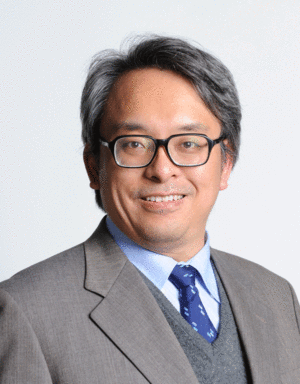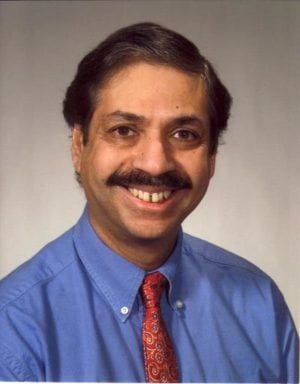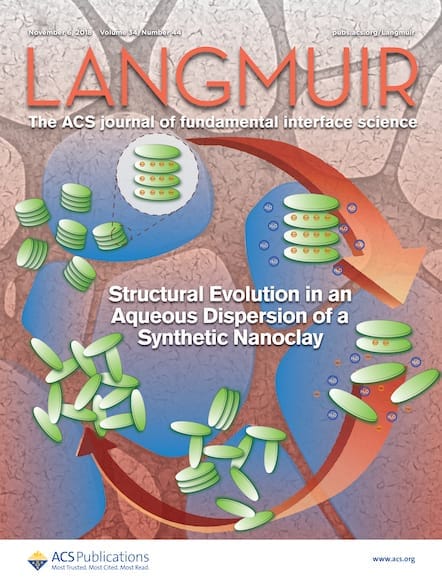Langmuir and the ACS Division of Colloid & Surface Chemistry are proud to announce Professor Katsuhiko Ariga of the National Institute for Materials Science and Professor Ayusman Sen of Penn State University as the winners of the 2019 Langmuir Lectureship Award.

Langmuir and the ACS Division of Colloid & Surface Chemistry are proud to announce Professor Katsuhiko Ariga of the National Institute for Materials Science and Professor Ayusman Sen of Penn State University as the winners of the 2019 Langmuir Lectureship Award. For the past 40 years, this award has recognized leading researchers working in the interdisciplinary field of colloid and surface chemistry.
Meet the Winners
Professor Katsuhiko Ariga

Professor Katsuhiko Ariga serves as MANA Principal Investigator at the International Center for Materials Nanoarchitectonics at the National Institute for Materials Science in Tsukuba, Japan. Professor Ariga is being recognized for his pioneering work in the self-assembly of functional nanostructures by exploiting the unique opportunities provided by interfaces, including fluid-fluid interfaces, molecule-molecule interfaces, and interfaces of self-assembled structures in bulk. We spoke with Profs. Lorena Tribe and Kathleen Stebe, the respective ACS Colloid Division of Surface Chemistry Chair and Chair-Elect, as well as Langmuir Editor-in-Chief Professor Françoise Winnik about Professor Ariga. They state the award is particularly appropriate in the case of Professor Ariga, who used the Langmuir-Blodgett trough throughout his career to manipulate molecules with a high level of sophistication.
What does it mean to you to be awarded the 2019 Langmuir Lectureship?
Because I have been working on Langmuir-Blodgett (LB) films since [my] student days, I am extremely happy to receive the LangmuirLecture Award at the 100th anniversary year of Langmuir films.
Because interfaces are meeting points in the meaning of materials and science.
What project in your group are you most excited about right now and why?
Control of the most fundamental machines (molecular machines) and the most advanced machines (living cell) at liquid interfaces, in order to prove that interfaces can control everything.
You do not have to be better than your friends, but [you] must be different from the others.
Professor Ayusman Sen

Professor Ayusman Sen is a Distinguished Professor of Chemistry in the Department of Chemistry at Penn State University. The selection committee recognizes Professor Sen for his pioneering research in colloids and materials that harvest and convert catalytic chemical energy into mechanical energy, and for harnessing these phenomena to engineer intelligent functional materials from catalytically driven micropumps to active, motile colloids that sense, carry cargo, and self-organize via emergent interactions. “Professor Sen deserves recognition for his creative contributions that have spurred the growth of the highly interdisciplinary and exciting field of active colloids,” say Professors Stebe, Tribe, and Winnik.
What does it mean to you to be awarded the 2019 Langmuir Lectureship?
It is a great personal honor to win the Langmuir Lectureship and it recognizes the contributions that we and others have made to the burgeoning field of synthetic active matter and nano/micro-robotics.
What project in your group are you most excited about right now and why?
We work on nano and microparticles that move in fluids by harvesting energy from the surroundings. At this small scale, surface forces dominate and we were forced to come up with motility mechanisms that involved the generation of interfacial gradients and fluid flow.
The use of swarms of nanobots to perform seemingly miraculous tasks is a common trope in the annals of science fiction. Some of the physical challenges associated with operating on a small scale have been addressed, leading to the first generation of autonomous self-powered nanobots. We are now working on the next step: the design of nano and microbot systems that are able to communicate with each other and function collectively.
My advice is simple: Be excited about your work and go for broke! Research is hard and if you are not really excited, it is not worth doing. On the other hand, if you are doing cutting-edge research, fellow researchers will appreciate and follow your work, and that is the best reward.
